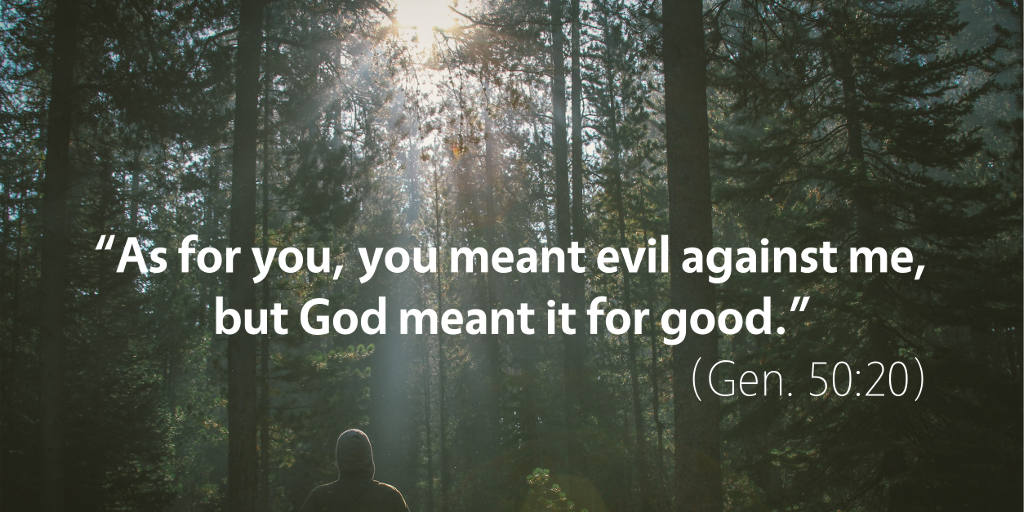Bible Readings for February 17th
Genesis 50 | Luke 3 | Job 16–17 | 1 Corinthians 4
As we talked about in the meditation for Genesis 45, Joseph evaluates the suffering he endured in his lifetime in a surprising way. Rather than seeing himself as a victim of thoroughly unfair treatment (which he certainly was), Joseph understood that God had sovereignly orchestrated the events in his life in order to put Joseph in charge of helping Egypt to survive through the seven-year famine, going so far as to say to his brothers, “So it was not you who sent me here, but God” (Gen. 45:8).
And in today’s reading from Genesis 50, Joseph articulates the same perspective. When his brothers begin to worry about whether the death of Jacob might have removed the only protection that was keeping Joseph from seeking revenge against them, they make up a story that Jacob had asked on his deathbed for Joseph to forgive his brothers. When they throw themselves before Joseph, begging for his mercy, he assures them he has no intention of harming them, saying, “As for you, you meant evil against me, but God meant it for good, to bring it about that many people should be kept alive, as they are today” (Gen. 50:20).
This is astonishing faith, but Joseph is bearing witness to the complicated relationship between God’s sovereignty and our responsibility. Joseph doesn’t ignore what his brothers have done, but he holds them accountable as having committed evil (Gen. 50:20). He certainly forgives his brothers, but he doesn’t downplay the significance of their treachery.
Joseph simply refuses to label his entire life’s experience as evil. Rather, he looks at what has happened and sees the sovereign hand of God—and he evaluates God’s sovereign decrees as good.
While the Bible never fully untangles this mystery of how God’s sovereignty fits in with our responsibility, we do see a rich understanding of this problem that helps us to avoid two opposite errors. On the one hand, the Bible takes evil very seriously—so seriously, in fact, that God’s own Son had to die to confront all the furious powers of hell at the cross—but on the other hand, the Bible also insists that God is sovereign over the affairs of this earth.
He himself never commits evil, even when people like Joseph have to undergo significant evil in their lives. In his sovereignty, he causes all things to work together for good for those who love him (Rom. 8:28), even if each of the specific events along the way are not necessarily the result of good in this world.
The pressing question from this story is not so much to figure out how exactly God’s sovereignty works for good in and through human evil. Instead, the pressing question is this: Will you and I trust God like Joseph did through all the evil that we will face?
Podcast: Play in new window | Download (4.7MB) | Embed
Subscribe: Apple Podcasts | RSS | More

Scripture quotations are from The Holy Bible, English Standard Version copyright © 2001 by Crossway Bibles, a division of Good News Publishers. Used by permission. All rights reserved.


